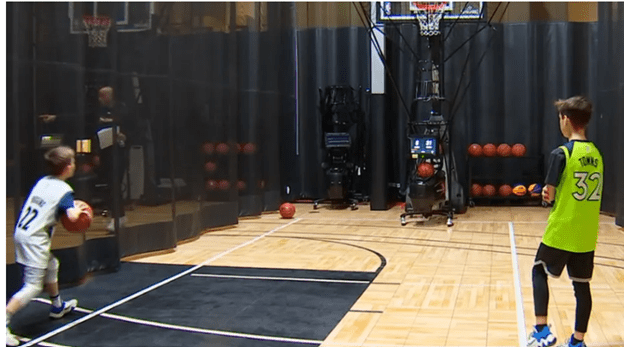
In March 2018, The Players’ Tribune published an essay by the five-time NBA All-Star Kevin Love titled “Everyone Is Going Through Something”, in which Love described his battles with mental illness and panic attacks.
“Mental health isn’t just an athlete thing. What you do for a living doesn’t have to define who you are. This is an everyone thing,” Love wrote. “No matter what our circumstances, we’re all carrying around things that hurt, and they can hurt us if we keep them buried inside. Not talking about our inner lives robs us of really getting to know ourselves and robs us of the chance to reach out to others in need.”
Ever since, the Miami Heat forward has been a strong supporter of mental health, founding the Kevin Love Fund to provide the resources to those in those in need with the aim of helping them achieve both physical and mental well-being. Love is currently one of the investors in Coa, a new business that markets itself as the world’s first gym for mental health.
Coa was founded by CEO and co-founder Alexa Meyer, who, while strolling around San Francisco, saw gyms focusing on physical health but no obvious options for people to work on their emotional health. Coa provides both one-on-one mental fitness sessions and group classes with licensed therapists, who have been specially matched with their clients.
In addition to Love, backers of the project include Neil Parikh (the founder of Casper) and a number of angel investors. Coa tested its emotional fitness curriculum at pop-up mental health gyms in cities like New York, San Francisco, Los Angeles, Vancouver, and Toronto. It also allowed employees from Asana and Spotify to participate in sessions.
These pop-ups were so successful that plans to open physical therapy gyms were eventually made; however, because of COVID-19, the business is now only providing its group classes and one-on-one sessions online. Dr. Emily Anhalt, the chief clinical officer and co-founder of Coa, claims that the pandemic caused a 900% spike in demand for the company.
“Our dream is still to have brick-and-mortar studios, because we think the in-person experience aspect is really important, but the pandemic definitely accelerated the launch of the online studio,” Anhalt explained. “I think what people are realizing is that mental health is important and that we can’t see a lot of the mental health struggles that we’ll face coming. We’re trying to use this [initiative] to show how working on your mental health proactively will help you better prepare and better handle the difficult things life throws your way. I think people are starting to realize how important that is and are recommitting to doing it.”
One of Coa’s objectives is to dispel the myth that only those with mental illnesses require treatment, while those in good health do not.
“We really want people to know you can start now and that nothing has to be wrong. You don’t have to be broken,” Anhalt declared. “The healthier you are, the better workout you’re going to get. You should start working out before you get sick. It’s a lot harder to go to the gym when you have the flu, right? Most people wait for a crisis to tackle their emotional wellbeing. I think we should be building up our emotional strength in this proactive, ongoing way so that we can handle whatever life throws at us.”
It is anticipated that Coa’s clients will be able to apply the mental exercises they learn at the online studio to their everyday lives, much like a yoga instructor would encourage students to practice yoga at home.
“Mental fitness isn’t one and done. You can’t do it for a weekend or a week and then think that you’re good,” Anhalt said. “It’s an ongoing process, a regimen, a routine that you do over time. Our classes will create spaces for people to practice with regularity, and we definitely hope they’ll practice solo. But we also know [that] something really special happens in a group setting, and we hope people will keep coming back to hone their skills and maintain that community.”
One more of Coa’s fundamental principles is to help people become more comfortable with being uncomfortable.
“Just like at the gym, if you’re not a little uncomfortable, you’re probably not doing a very good workout. You’re probably just doing what you would always do—you’re not getting stronger,” Anhalt stated. “It’s the same for our emotional health. As we get more comfortable being uncomfortable, we actually build these resilience muscles that allow us to better handle difficult things. I think we’ve found a really unique approach to doing this that feels really doable, but still just uncomfortable enough that you feel like you’re getting shit done and…growing as a person.”


